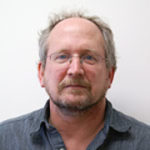The mDOT Center
Transforming health and wellness via temporally-precise mHealth interventions






mDOT@MD2K.org
901.678.1526
901.678.1526







The External Advisory Committee (EAC) for the mDOT Center is composed of eminent scholars with diverse and complementary expertise and is assembled with the explicit purpose to obtain feedback and guidance on research directions, software development, CP and SP selection, as well as in the overall structure and operations of the Center.

Professor of Computer Science
Dr. Jason Hong is a professor in the HCI Institute in School of Computer Science at Carnegie Mellon University (CMU) ...

Professor of Computer Science

Professor of Psychiatry
Dr. David Kennedy is a professor of Psychiatry at UMass Medical School – Dr. Kennedy is an expert in neuro-informatics, known ...

Professor of Psychiatry

Distinguished Professor of EECE
Dr. Veena Misra is a Distinguished Professor of Electrical and Computer Engineering at North Carolina ...

Distinguished Professor of EECE

Professor of Preventive Medicine
Dr. David C. Mohr received his PhD in Clinical Psychology from the University of Arizona. He was on the faculty at the ...

Professor of Preventive Medicine

Professor of Medicine
Dr. Niteesh Choudhry is a professor of Medicine at Harvard Medical School, professor in the Department of Health Policy ...

Professor of Medicine
